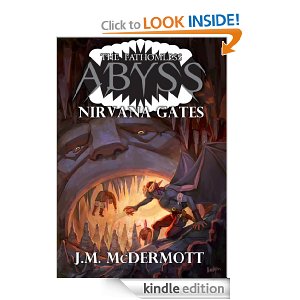
My kombucha SCOBY, packed meticulously for the trip in Tupperware and three layers of ziplock bags and packing tape, has recovered fully from its journey and produced two batches of kombucha for second ferments each time. I have mainly blackberry, because there’s a gazillion blackberries out back, but I am going to try some lavender and mint as well. I’ve found the store down at Santa Cruz full of kombucha varieties, go figure. My favorite so far is a lovely lavender melon that I am going to try to replicate.
I’ve also got a loaf of sourdough bread about to come out of the oven, and will proof some starter tonight for sourdough pancakes in the morning. I’ve never done any sourdough stuff other than Herman, so I’ll be curious, particularly since I tried using sourdough with this no-knead bread recipe. Exciting times here on writing retreat.
From “Poppy” (working title)
Poppy’s arms were strong and brawny, and as big around as a young birch tree, and capable of swinging the rosewood truncheon she kept behind the Amethyst’s bar with a solid thunk that would stop a belligerent drunk in his tracks, usually at the first blow, always by the second.
She’d inherited the wayside inn ““ “twice as far as the back of beyond” one traveler had called it ““ when her own parents were slain in the Shadow Wars and she’d taken over from old Dad, her mother’s father at the tender age of seventeen. By a quarter of a century later, old Dad was old indeed, and Poppy knew everything there was to know about the art of running an inn located somewhat remotely, it was true, but at least located on the lesser of the two main routes between the capital and Pickering-on-the-Beach.
Her hair was colored henna and brass, and she was a big woman, with a bigger laugh, one you could hear echoing down the road at night when you were tired of walking and heard her laughter, letting you know the inn was within shouting distance. A dozen bards had tried to teach her one musical instrument or another and she had taken to none but the pat-a-pat drums, and even then did not like to perform before others. While she’d taken lovers enough, she’d never cared to kindle with child, and then one thing happened and another, and before too long, she realized she was no longer capable of having a child in the usual way.
The way she learned it was this: she was on her way to the wellhouse in order fetch a pound of butter when a bear came shuffling out of the woods, rubbing its fur against the pines as it went, as shedding summer wool as it went, with the thicker, darker winter fur coming in underneath.
She paused and looked at it, unafraid but wary, and the bear looked back. Then it reared to its hind legs, pointed a paw at her, and growled out, the words barely understandable through bearish lips, “Woe to you, fruitless woman. With your womb dies the last of your grandfather’s line, and I have come to claim my curse.”
Poppy blinked.
“What?” she said, and dropped the butter.




